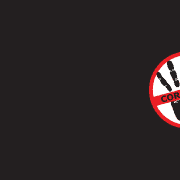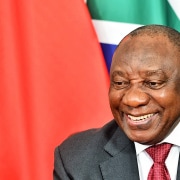|
Getting your Trinity Audio player ready...
|
South Africa may have the National Anti-Corruption Advisory Council (NACAC) to help steer the process of engineering a clear and impactful national anti-corruption agenda and advising President Cyril Ramaphosa along the way, but the work that must be done belongs to everyone, and it will take the efforts of all of us to achieve the turnaround that the country needs.
This was the resounding sentiment shared by speakers at the inaugural national anti-corruption dialogue hosted by the NACAC in Ekurhuleni, Gauteng, on Wednesday and Thursday. Council chairperson Prof Firoz Cachalia opened the proceedings by outlining the work that has been done by the body to date, highlighting that the country needed to collectively engage itself in a movement that would help eradicate the systemic corruption that has gripped the country for several decades.
His call was echoed by Ramaphosa, who delivered the keynote address. “We meet here as diverse constituencies, but with a common purpose. We are here to identify the further measures we need to take to build a South Africa that does not allow for corruption or capture … our shared determination to build an ethical society founded on the values of our democratic Constitution.”
Ramaphosa admitted that corruption was one of the biggest failures of South Africa’s democratic era, one which blemished the strides that the democratically elected government had made in developing the country for its citizens. “All South Africans suffer when goods, services, and resources meant for public benefit are misappropriated, mismanaged and stolen, but it is the poor who suffer most. Corruption carries a huge opportunity cost. Economic growth is stifled and businesses suffer. Development stalls and institutions fail.
“Corruption has wounded our democracy and shaken people’s faith in our institutions. If corruption is not arrested, the greatest damage will not be in the funds stolen, the jobs lost, or the services not delivered.”
The president wished the participants in the event a successful dialogue, pledging unwavering support from his office for all the NACAC’s efforts. He established the council in August 2022 in response to the recommendations of the state capture commission.
“This dialogue is a valuable opportunity to mobilise all key stakeholders behind this effort, from civil society, business and labour, to academia, government, and political parties. We meet here as diverse constituencies, but with a common purpose. We are here to identify the further measures we need to take to build a South Africa that does not allow for corruption or capture.”
Nation-wide anti-corruption movement
Cachalia emphasised that while the council was clear on its objectives and aspirations, the broader fight of strengthening institutional accountability and reforming the structures that exist was that of a collective.
What the council envisaged, among other things, was an anti-corruption movement that would see the building of a strong agenda to fight corruption become a reality. The National Anti-Corruption Strategy, sanctioned by Cabinet at the end of 2020, would form the basis of the country’s reform agenda.
Chief Justice Raymond Zondo endorsed the existence of the NACAC, and offered himself to it whenever he would be needed. He acknowledged the severity of the corruption challenges that the country faces, particularly in circumstances where regulatory and criminal justice institutions were under pressure to make impactful reform work, despite having to recover from capture themselves.
But, Zondo warned, the task is too big for just these institutions, and should be recognised as one that will require all South Africans to play a part. “It’s a huge responsibility, because the levels of corruption in our country have reached completely unacceptable proportions. Unless something very drastic and effective is done, soon we will have no country worth calling our home.”
He recounted how his own opportunity to chair the state capture commission became a moral decision for him in January 2018, after several attempts to get retired judges on board had failed. He accepted the challenge when then chief justice Mogoeng Mogoeng asked if he should not rather be the one to head up the inquiry. The task of appointing the chairperson fell on Mogoeng following an extraordinary remedial action in former public protector Thuli Madonsela’s State of Capture report, that the chief justice, and not the sitting president, be the one to appoint the chairperson. Then president Jacob Zuma had been implicated in Madonsela’s report, and thus had to forego this duty.
“It was clear to me that we were not able to find a judge within the time that we were given … it was clear that we had a challenge.” He has no regrets, however, about taking on the task.
Resilience and patience needed
Chris Stone, a professor at Oxford University who was invited by the NACAC, gave insights into anti-corruption strategies that have been implemented in other countries. Their successes, he noted, relied on the leadership qualities of the people and communities that led them.
But he warned that maintaining an agenda of this magnitude would require resilience and patience from the people on the ground, and its successes cannot only be pinned on the personalities leading the charge, but on the strengths of the systems put in place.
In closing the second day of proceedings, Cachalia read a pledge that the council had formulated, encouraging all present to encourage their communities and broader networks to take it on as part of their organisational culture.








